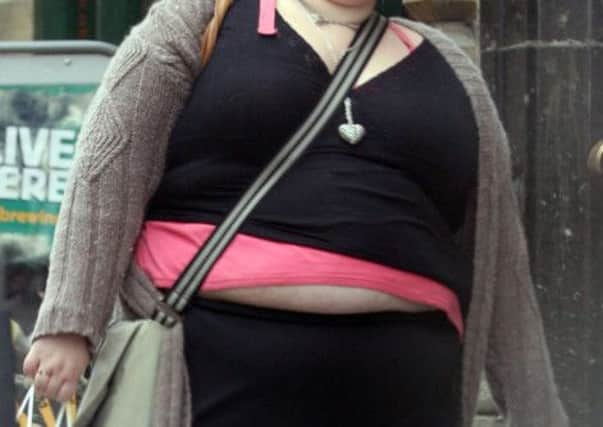‘Looming health crisis’ for obese OAPs


New figures show that almost three quarters of people aged 45 to 74 in England are either overweight or obese, according to the Health and Social Care Information Centre (HSCIC).
Young adults are the only age group which have a normal average body mass index (BMI).
Advertisement
Hide AdAdvertisement
Hide AdThe National Obesity Forum warned that figures showed a large proportion of the population could face significant obesity-related health problems including type 2 diabetes, coronary heart disease, some types of cancer and stroke.
Spokesman Tam Fry said: “These figures show that there is a looming health crisis for the nation. If you think that obesity is just for the young and the middle aged then you are wrong. Everybody needs to take control and watch what they are eating.”
He warned that many overweight elderly people are in a “catch 22” situation because they are suffering a combination of problems linked to being overweight and muscle wastage - so they cannot exercise to improve their health.
Age UK’s Ruthe Isden warned that public health measures are mostly aimed at younger and not older people, but that it was “never too late to adopt healthy behaviours.”
Advertisement
Hide AdAdvertisement
Hide AdThe figures come as the Department of Health considers introducing new guidelines which would rule that just one can of fizzy drink will contain an adult’s entire daily ration of sugar.
A draft report from the Scientific Advisory Committee on Nutrition (SACN) urges slashing the amount of “free sugar” that contributes to dietary calories by half - from 10 per cent to five, the same as a single 330ml can of fizzy drink, which contains around seven teaspoonfuls of sugar.
Free sugars are those added to food or contained in fruit juices, honey, syrups and sweetened drinks.
The experts, who also recommended upping fibre intake, came to their conclusions after reviewing thousands of research papers on the effects of sugar.
Advertisement
Hide AdAdvertisement
Hide AdDr Ann Prentice, chair of the SACN said: “There is strong evidence in the report to show that if people were to have less free sugars and more fibre in their diet they would lower their risk of cardiovascular disease, Type 2 diabetes and bowel cancer.
“For their health, people need to consume a balanced diet which includes carbohydrate-rich foods that are low in free sugars and high in fibre.”
Dr Alison Tedstone, chief nutritionist at Public Health England, said it was “very concerned” about sugar intakes, as every population group in England is exceeding the current recommended intake.
She said that soft drinks accounted for about 30 per cent of children’s sugar intake. Cutting sugar to 5 per cent of calories simply meant “making a lifestyle choice”, she added.
Advertisement
Hide AdAdvertisement
Hide AdProfessor Graham MacGregor, chairman of the group Action on Sugar, said the report showed “the urgency of acting now.”
Simon Gillespie, chief executive of the British Heart Foundation, warned it would not be easy to get people to “lose their sweet tooth.”
A watershed ban on the advertising of foods high in sugar, fats and salt and a “sugar tax” on sweetened drinks would help.